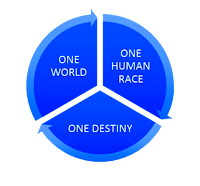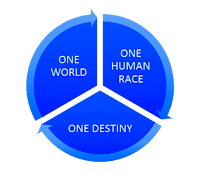THE UNWINNABLE FIGHT AGAINST CORRUPTION
Getting a clearer view of corruption?
The British Prime Minister, David Cameron, has recent forcefully stuffed both his feet into his, admittedly, big mouth, by telling the Queen and the Archbishop, and, unbeknown to him at the time, the world, that Nigeria and Afghanistan are the most fantastically corrupt countries.
Naturally, the Nigerians were not happy, and their President, Muhammed Buhari, suggested that Britain should return the proceeds of corruption from London back to Nigeria. The Afghans, it seemed, were not as offended as the Nigerians, with their President indicating that his country does accept that corruption is a problem in his country, but that it is something they are working hard to address.
It would not be going to far to argue that corruption, whether it be that pertaining to money and or resources being rendered or given to someone or a business, in order for the giver and the receiver to acquire some dishonest or illegal advantage, or in situations where people in power offer positions of power, including jobs, to people by way of nepotism, occurs in all countries. The difference is likely to be one of degrees; the degree to which the country's government and society is corrupt, and the ordinary citizen is unable to get a service from, say government agencies, without having to 'oil the palms' of government functionaries. Or the extent to which the citizen has to pay for services to which they are entitled, without having to give money to somebody or everybody in the 'chain' in order to either get what they are entitled to, or to get it in a timely fashion, or to 'jump the queue.'
There is more satisfaction to be gain from honest toil.
Rightly or wrongly, Nigeria does have an appalling reputation for corruption, and their has been a long history of some Nigerian citizens robbing their country's resources and leaving the country with it to go abroad and live the good life. Some Nigerians also have a penchant to use religion to exploit their people; feeding on their desire to get rich, or the belief that their is a way to get rich quick; other than through crime and deception.
Now, of course there are millions of Nigerians who are decent ordinary people who are simply struggling to have a viable life. However, it really is the case that the 'bad apple Nigerians' have greatly tarnished their country's reputation, and has made the problem of corruption endemic, and, probably into a 'normal way of life' in Nigeria and other countries similarly afflicted.
How do you root out endemic corruption? Not easily, is the answer, especially in a country like Nigeria, with its history of military governments which targeted getting rid of corruptin.
Globally, corruption and nepotism are massive problems, and we can presume that, if the affected countries, which, as I have stated, are all countries, it would probably, initially, cause a massive negative impact on their economies. It might not result in new money going into these economies, but rather existing moneys being re-allocated to different ends. It could also result in a reduction in cost and prices of goods and services, which have become inflated, with the need to the hundreds of thousands of people whose role in the corruption process is adding no value to the economy, but is instead, increasing costs.
I suspect that corruption is like religion and poverty, a fixed part of the fabric of human societies, and that, like our economies, it might contract and expand from time to time, in response to the honest or corrupt governance of each government.
Corruption is like barnacle, and not easily removed.








Comments